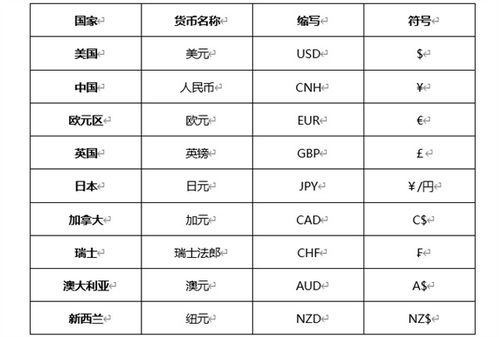Introduction to Cryptocurrency English Vocabulary

Cryptocurrency has become a significant part of the financial landscape, and understanding the terminology is crucial for anyone interested in this field. This article provides an overview of essential cryptocurrency English vocabulary, helping readers navigate the world of digital currencies.
Basic Cryptocurrency Terms

Understanding the foundational terms is essential for beginners. Here are some key vocabulary items:
Cryptocurrency (Cryptocurrency): A digital or virtual currency that uses cryptography for security.
Bitcoin (Bitcoin): The first and most well-known cryptocurrency, created in 2009.
Blockchain (Blockchain): A decentralized ledger that records transactions across many computers so that the record cannot be altered retroactively without the alteration of all subsequent blocks and the consensus of the network.
Altcoin (Altcoin): Any cryptocurrency other than Bitcoin.
ICO (ICO): Initial Coin Offering, a process by which a new cryptocurrency is offered for sale to the public for the first time.
Smart Contract (Smart Contract): A self-executing contract with the terms of the agreement directly written into lines of code.
Understanding Transactions and Security

Transactions and security are critical aspects of cryptocurrency. Here are some relevant terms:
Transaction (Transaction): The process of transferring cryptocurrency from one person to another.
Public Key (Public Key): A key used to encrypt messages sent to the user, ensuring that only the intended recipient can decrypt and read the message.
Private Key (Private Key): A key used to decrypt messages sent to the user, ensuring that only the user can read the message.
Wallet (Wallet): A digital wallet is used to store, send, and receive cryptocurrencies.
Hash (Hash): A unique digital fingerprint that identifies a cryptocurrency transaction.
Proof of Work (Proof of Work): A process in which miners compete to solve complex mathematical problems to validate transactions and add them to the blockchain.
Market and Investment Terms

When discussing the market and investment aspects of cryptocurrency, it's important to know these terms:
Market Cap (Market Cap): The total value of all coins or tokens in circulation.
Volume (Volume): The total number of units of a cryptocurrency that have been traded over a specific time period.
Market Order (Market Order): An order to buy or sell a cryptocurrency at the best available price.
Limit Order (Limit Order): An order to buy or sell a cryptocurrency at a specific price or better.
Whale (Whale): A person or entity that holds a large amount of cryptocurrency and can significantly influence the market.
Market Manipulation (Market Manipulation): The act of artificially influencing the price of a cryptocurrency.
Regulatory and Legal Vocabulary

Understanding the legal and regulatory aspects of cryptocurrency is vital. Here are some relevant terms:
Regulatory Compliance (Regulatory Compliance): Adhering to the laws and regulations set by a governing body.
KYC (KYC): Know Your Customer, a process used by businesses to verify the identity of their customers.
AML (AML): Anti-Money Laundering, a process to prevent money laundering by monitoring and controlling transactions.
Sanctions (Sanctions): Legal or administrative measures that are imposed as penalties.
Exchanges (Exchanges): Platforms where users can buy, sell, and trade cryptocurrencies.
Conclusion

Understanding cryptocurrency English vocabulary is essential for anyone looking to engage with the digital currency market. By familiarizing yourself with these terms, you'll be better equipped to navigate the world of cryptocurrencies, make informed decisions, and stay up-to-date with the latest developments in this rapidly evolving field.
